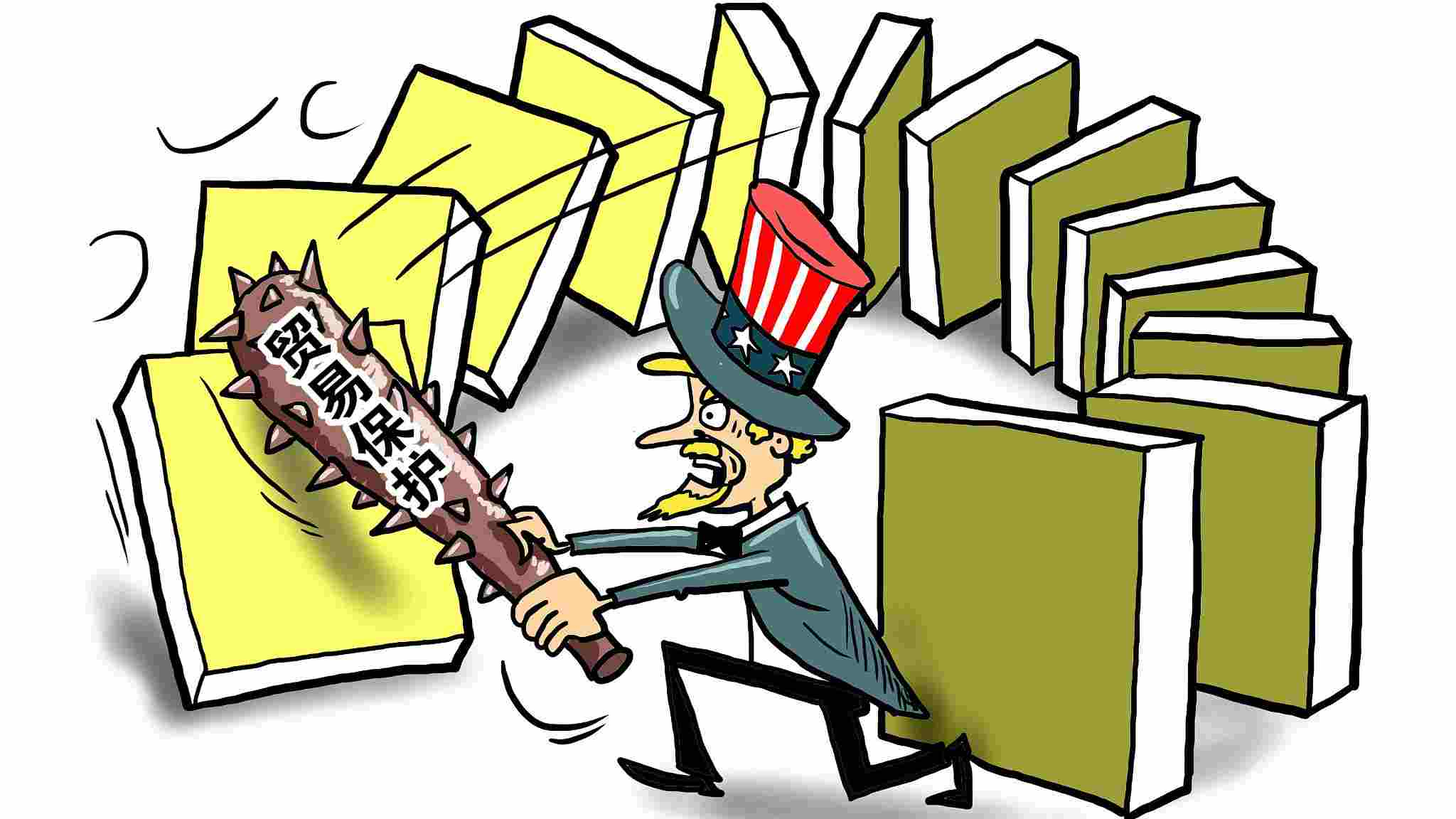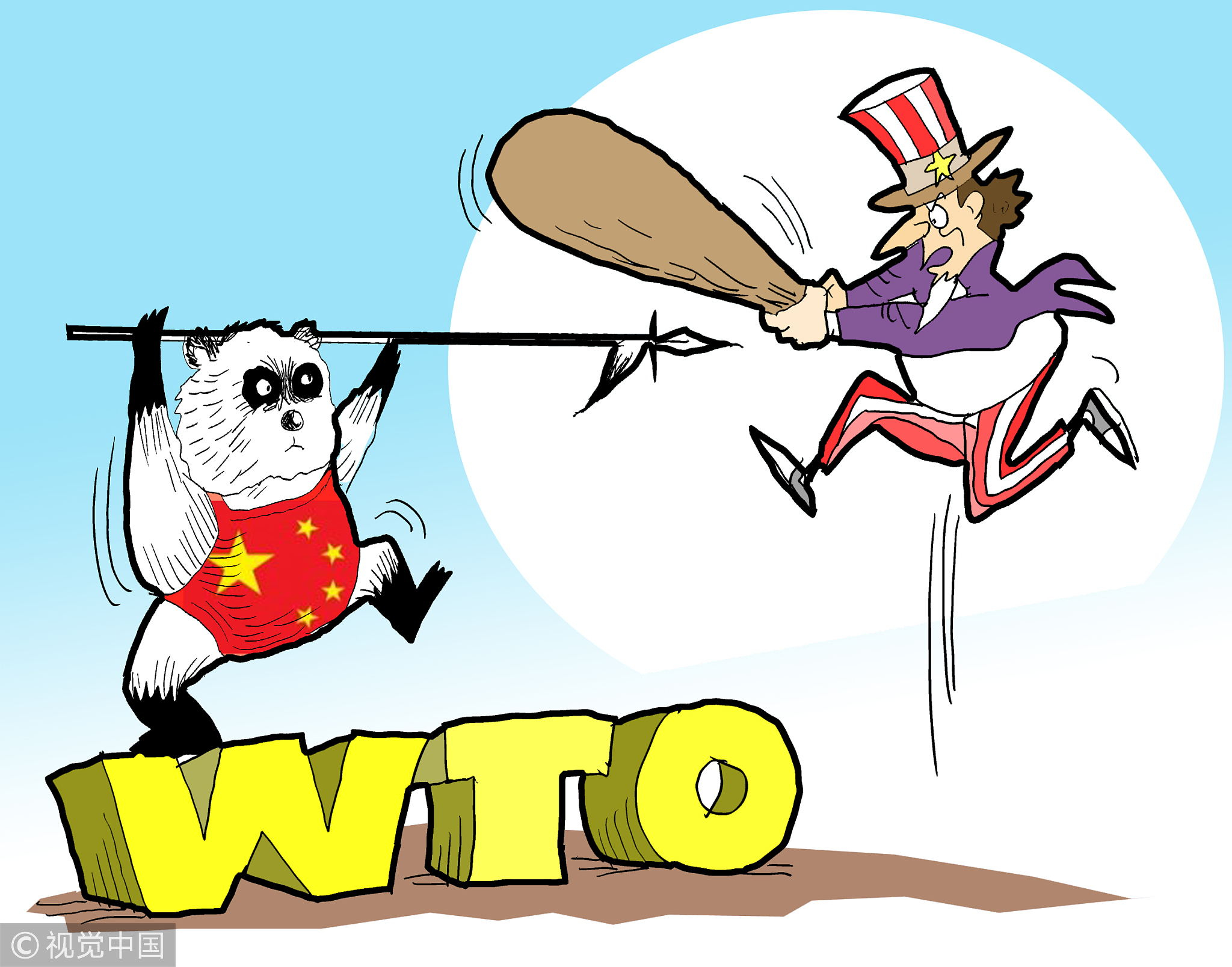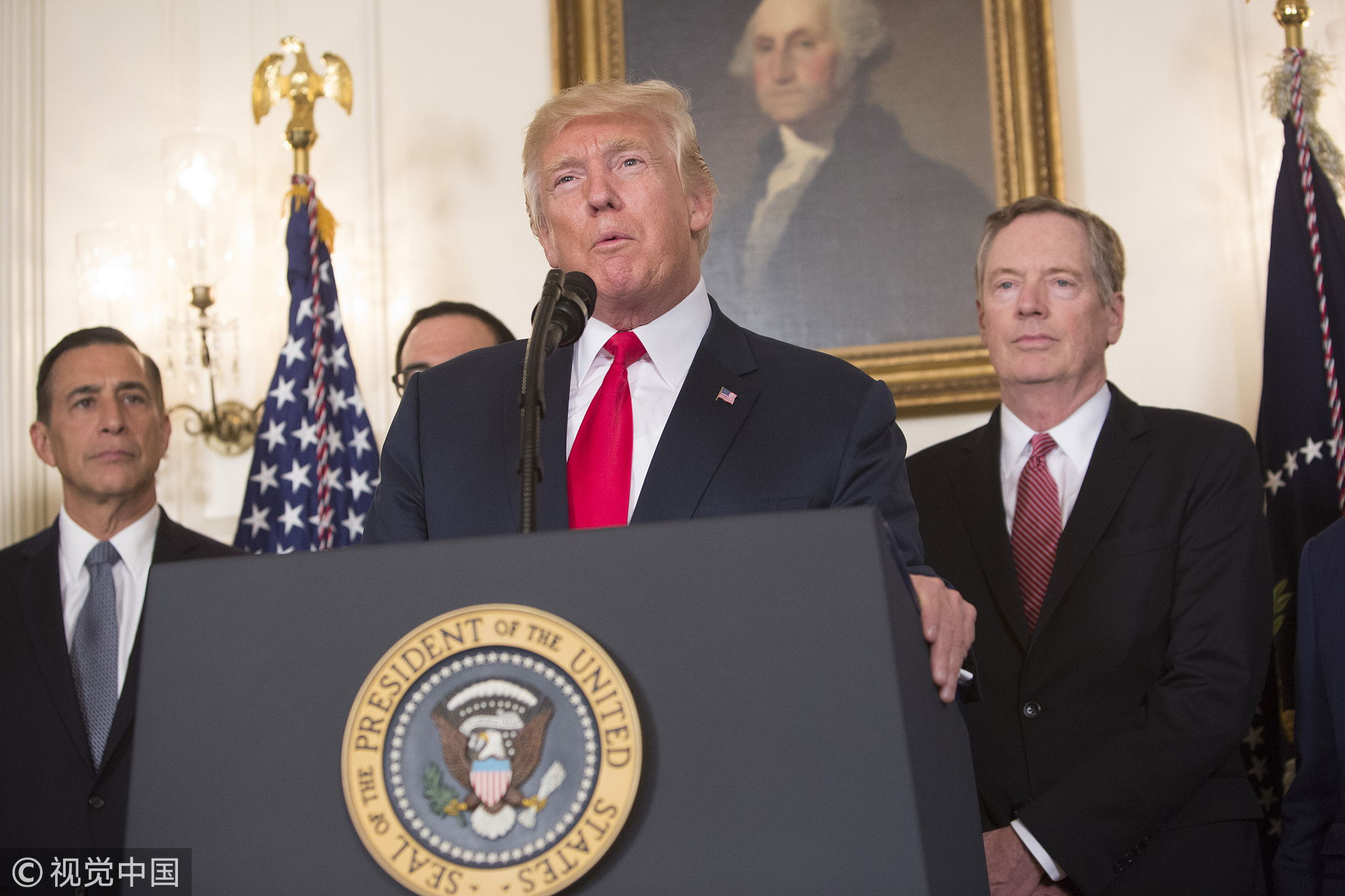
Opinions
12:12, 26-Oct-2018
Opinion: Section 301 reflects US attempt to prevent China's legitimate development
Updated
11:27, 29-Oct-2018
CGTN

Editor's note: The following is an edited translation of a commentary from the Chinese-language "Commentaries on International Affairs."
The South Center, an intergovernmental organization of about 50 developing countries, recently published a report titled "US Section 301 Actions: Why They are Illegitimate and Misguided". Established in 1995, the South Center is an academically-independent think tank committed to South-South solidarity, and strengthening fair and equal cooperation between the global North and South. Its recent report on the Section 301 investigations explains the history of America's misuse of these domestic investigations.
Section 301 of the US Trade Act of 1974 is an important tool designed to support American exporters by punishing countries engaging in anti-market behavior. For example, in 1975 American egg suppliers asked the Ford administration to investigate Canada's import quotas; and in 1976 the Florida Citrus Commission raised concerns about European tariff discrimination against American orange juice.
But by the mid-1980s and early 1990s, they had gained notoriety for their misuse by Washington as investigations were launched against trading partners like Japan, despite a lack of complaints from American companies that their opponents had unfair trade practices.
The misuse of Section 301 investigations should have come to an end in 1995 with the establishment of the World Trade Organization (WTO). The WTO was an improvement to the General Agreement on Tariffs and Trade, which was previously only applicable to the trade in goods.
As Chad Bown, an expert on trade issues at the Peterson Institute for International Economics, has pointed out, the WTO dispute settlement mechanism is quite effective, and negates the need for Section 301 investigations. But as we now know, that wasn't the end of the story. As the South Center report points out, the United States has once again used the Section 301 investigations to raise huge levies on imports from China in the ongoing trade conflict, instead of taking their case to the WTO.

VCG Photo
VCG Photo
Some of the core American complaints about technology transfers, joint ventures, and licensing in China's market come down to contracts between companies. According to Article 28.2 of the Agreement on Trade-Related Aspects of Intellectual Property Rights, "Patent owners shall also have the right to assign, or transfer by succession, the patent and to conclude licensing contracts."
As the South Center report makes clear, American companies investing in China have entered into contracts with their domestic partners voluntarily, and they did so because they recognized the opportunities in China's massive market.
As for the criticism of the support China's government offers for industrial and technological development, the South Center report points out that these accusations might leave people with the impression that the United States has a laisse-faire economy, but in reality it does not.
Robert Wade, a professor at the Institute of Development Studies at the London School of Economics and Political Science, said that "industrial policy" might sound like an anathema in American policy circles, where the United States is held up as a champion of free market capitalism. But "the US government has in fact undertaken much more industrial policy than this narrative implies, from the founding of the Republic to today, including the promotion of what became major technological innovations".
The reason for keeping its industrial policy programs "substantially hidden", Wade said, is that prevailing market-fundamentalist forces would push for an end to such programs, which have a long and rich history in the United States. In 1791, the first US Treasury Secretary, Alexander Hamilton, proposed developing the country's manufacturing industry in order to catch up with Britain and lay the material foundations for strong armed forces. And American industrial policy isn't some quaint idea from the past.
The American government spends tens of billions of dollars a year on subsidies for the country's agricultural sector, and the European Union threatened to take the Americans to the WTO over their massive bailout of the auto industry after the 2008 financial crisis. An unnamed American official involved in science and technology projects was quoted by the South Center as saying, "We certainly see these projects as de facto industrial policies, but we can't use that term, we usually call it R&D policy."

US President Donald Trump speaks before signing a memorandum on addressing China's laws, policies, practices, and actions related to intellectual property, innovation, and technology at the White House in Washington, DC on August 14, 2017. /VCG Photo
US President Donald Trump speaks before signing a memorandum on addressing China's laws, policies, practices, and actions related to intellectual property, innovation, and technology at the White House in Washington, DC on August 14, 2017. /VCG Photo
The report also cites China's tremendous progress in intellectual property protections, noting that they stem from China's growing investment into research. This investment has greatly boosted technological innovation. For example, China's current R&D investment accounts for 21 percent of the world total, equivalent to the sum invested by all of the European countries combined; it's only 4.7 percent lower than the United States.
According to a Nikkei Asian Review report from July, Tsinghua University, home to China's top engineering and computer science talent, rivals the Massachusetts Institute of Technology (MIT) in the number of patents granted in the United States, which provides an indication of the strength of China's knowledge output. Taken together, the report's authors believe that the claim made by the United States that China's scientific and technological progress was gained through "stealing intellectual property rights" and "imitation" is divorced from reality.
America's major trading partners, such as the European Union and Japan, have been deeply affected by the interference to trade caused by Section 301 investigations. In the eyes of the US trading partners, said Chad Bown, “the US government acted as police force (identifying the foreign government's crime), prosecutor (making the legal arguments), jury (ruling on the evidence), and judge (sentencing the foreigner to US retaliatory punishment).” Economics professor John McMillan characterized multilateralism as, "If you help me, I'll help you'. However, under Section 301, it is 'Unless you help me, I'll hurt you."
The United States launched Section 301 investigations against China because it saw them as a way to close the gap, that is, the American trade deficit with China, and also because of their anxiety over China's rapid development. Many economists have pointed out that the trade deficit mainly stems from America's low savings rate and the status of the dollar as the world's reserve currency.
As for China's rapidly growing momentum for innovation, it's telling how quickly the attitude of the United States has changed from seeing China as a copycat and not an innovator, to apprehension as China races to catch up. The use of Section 301 investigations is, as the South Center report makes clear, a transparent attempt to tap the brakes on China's legitimate industrial and technological development, and has nothing to do with trade.
(If you want to contribute and have specific expertise, contact us at opinions@cgtn.com.)

SITEMAP
Copyright © 2018 CGTN. Beijing ICP prepared NO.16065310-3
Copyright © 2018 CGTN. Beijing ICP prepared NO.16065310-3